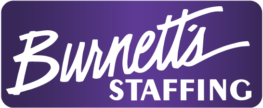Staffing companies and recruiting agencies will stress the importance of proper resume writing until they’re blue in the face. For good reason, too. You have one opportunity to stand out to a potential employer and it’s a simple piece of paper among hundreds, sometimes thousands, of others. How is yours any better than the rest of them? Over 3 million temporary employment opportunities are filled by staffing agencies in the United States in a given week. That’s a lot of resumes. Let’s make yours shine.
Some applicants think that depending on their interviewing skills will be their saving grace when their resume game isn’t as strong as it should be, but the only thing that’ll get you into that interview is being noticed on paper first. It’s your first impression, your printed handshake, your first sample of work being evaluated against all the others. It’s vital to do it right from the get-go.
Less is more
Building an overly complex resume will kill it in its tracks. Think of it this way, if a hiring manager can’t make heads or tails of the flow of your resume within three seconds, they’ll be moving on to the next one. They don’t have the time, nor do they need to take the time, to puzzle out your mess of a resume. There are plenty more in the stack. Name, contact information, content, start there. But wait, there’s more.
Concise, digestible, directed content
When you can use fewer words to make any point, take that route. This is especially important in resume writing. Once they’ve read past your name and contact information, you have a one or two sentence opportunity to summarize your experience, talent, and goals. Not a paragraph. Leave your Dickens-esque romantic linguistic fluff at the door, it has no place here. Think more along the lines of a tweet, but each word landing a purposeful punch.
Recruiting agencies recommend highlighting only your relevant experience. If you’re young and don’t have much career experience, highlight your education and internship experience. If you’re more experienced and got your degree 20 years ago, highlight what’s more chronologically relevant to the position you’re applying for. Posturing your experience — whether great or small — is about presenting it against the position you desire. This requires different adaptations of your resume. Unlike the one ring, one resume does not rule them all.
Nuts and bolts matter
Don’t neglect formatting, grammar and spelling checks, font sizes, and general readability. If your formatting is a confused mess combined with terrible fonts or you have mistakes peppered throughout your resume, that reflects on your professional capabilities. You’re handing a potential employer your first deliverable. The quality of it speaks volumes on the care you might put into future projects should you be hired. Craft your resume accordingly.
Among the tidbits of advice and direction you’ll be given by recruiting agencies, your resume comes down to the care you wish to put into reflecting your professional persona. It’s an evolving art that requires constant upkeep, so don’t be discouraged. Begin with the most bare-bones copy possibly and add only the things that strongly magnify you, your professionalism, and the weight of your identity through words.

